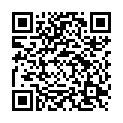|
|
|
| Module code: MAM_19_IP_1.08.IP1 |
|
|
2V+2S (4 hours per week) |
|
5 |
| Semester: 1 |
| Mandatory course: yes |
Language of instruction:
German |
Assessment:
Written exam 100% (120 min.)
[updated 04.11.2020]
|
DFMME-1a1 (P610-0445) Mechanical Engineering, Master, ASPO 01.10.2024
, semester 1, mandatory course, Specialization Industrial Production
MAM_19_IP_1.08.IP1 (P241-0055) Engineering and Management, Master, ASPO 01.10.2019
, semester 1, mandatory course, Specialization Industrial Production
MAM_24_IP_1.08.IP1 Engineering and Management, Master, SO 01.10.2024
, semester 1, mandatory course, Specialization Industrial Production
|
60 class hours (= 45 clock hours) over a 15-week period.
The total student study time is 150 hours (equivalent to 5 ECTS credits).
There are therefore 105 hours available for class preparation and follow-up work and exam preparation.
|
Recommended prerequisites (modules):
None.
|
Recommended as prerequisite for:
MAM_19_IP_2.10.IP2 Industrial Manufacturing 2
MAM_19_IP_3.10.PS3 Production Systems 3
[updated 06.04.2020]
|
Module coordinator:
Prof. Dr. Jürgen Griebsch |
Lecturer:
Prof. Dr. Jürgen Griebsch
[updated 06.04.2020]
|
Learning outcomes:
After successfully completing this module, students will have learned to understand the manufacturing processes in their context, i.e. their sequential integration into process sequences and production cycles.
They will be aware of technological and economic interrelationships in order to select - depending on lot sizes and total purchase quantities - the processes that will lead to the best results with regard to accuracy with drawings, feasibility, quality and supplier reliability.
Students will be able to evaluate and calculate components.
They will be familiar with the interrelationships and processes inherent in project management.
Students will have learned the basics of different management methods and will be able to place them in the context of different, company-specific conditions.
[updated 04.11.2020]
|
Module content:
Selecting manufacturing processes:
- Laser tools / joining technology
- Industrial measurement & sensor technology
- Production-oriented design
Project management/business administration and basic concepts
- Machine hour rate calculations and base object costing based on quantity structures, call-off figures and delivery dates
- Target costing and determining fair market prices on the basis of technically feasible solutions
- Patents and patent searches
- Project management (budgets, management accounting, flow charts, etc.)
- Understanding leadership and leadership tasks
[updated 04.11.2020]
|
Teaching methods/Media:
Lectures that alternate with seminars.
[updated 04.11.2020]
|
Recommended or required reading:
Bliedtner, J., Müller, H., Barz, A.; Lasermaterialbearbeitung - Grundlagen, Verfahren, Anwendungen, Beispiele; Hanser Verlag, 2013; ISBN: 978-3-446-42168-4
Hügel, Helmut / Graf, Thomas; "Laser in der Fertigung (Arbeitstitel) - Strahlquellen, Systeme, Fertigungsverfahren; ISBN: 978-3-8351-0005-3
Hoenow, G., Meißner, T.; Entwerfen und Gestalten im Maschinenbau; Hanser Verlag, 2016; ISBN: 978-3-446-44340-2
Gevatter, Grünhaupt; Handbuch der Mess- und Automatisierungstechnik in der Produktion; Springer Verlag, 2006; ISBN: 978-3-540-21207-2
Coenenberg, A.G., Fischer, T.M., Günther, T.; Kostenrechnung und Kostenanalyse; Schäffer-Poeschel, 2012; ISBN: 978-3-7910-3612-0
Kremin-Buch, B.; Strategisches Kostenmanagement: Grundlagen und moderne Instrumente. Mit Fallstudien; Gabler Verlag, 2012; ISBN 978-3-8349-9216-1
Fajen, A.; Erfolgreiche Führung multikultureller virtueller Teams: Wie Führungskräfte neuartige Herausforderungen meistern; Springer Gabler Verlag, 2018; ISBN: 978-3658232672
[updated 04.11.2020]
|


